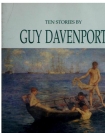Penguin Island - Anatole France (good book recommendations .TXT) 📗

- Author: Anatole France
Book online «Penguin Island - Anatole France (good book recommendations .TXT) 📗». Author Anatole France
For the moment the peril was nowhere and yet everywhere. The majority remained solid; but the leaders became stiff and exacting. Perhaps Hippolyte Cérès would never have intentionally sacrificed his interests to his vengeance. But thinking that he could henceforth, without compromising his own fortune, secretly damage that of Paul Visire, he devoted himself to the skilful and careful preparation of difficulties and perils for the Head of the Government. Though far from equalling his rival in talent, knowledge, and authority, he greatly surpassed him in his skill as a lobbyist. The most acute parliamentarians attributed the recent misfortunes of the majority to his refusal to vote. At committees, by a calculated imprudence, he favoured motions which he knew the Prime Minister could not accept. One day his intentional awkwardness provoked a sudden and violent conflict between the Minister of the Interior, and his departmental Treasurer. Then Cérès became frightened and went no further. It would have been dangerous for him to overthrow the ministry too soon. His ingenious hatred found an issue by circuitous paths. Paul Visire had a poor cousin of easy morals who bore his name. Cérès, remembering this lady, Celine Visire, brought her into prominence, arranged that she should become intimate with several foreigners, and procured her engagements in the music halls. One summer night, on a stage in the Champs Élysées before a tumultuous crowd, she performed risky dances to the sounds of wild music which was audible in the gardens where the President of the Republic was entertaining Royalty. The name of Visire, associated with these scandals, covered the walls of the town, filled the newspapers, was repeated in the cafés and at balls, and blazed forth in letters of fire upon the boulevards.
Nobody regarded the Prime Minister as responsible for the scandal of his relatives, but a bad idea of his family came into existence, and the influence of the statesman was diminished.
Almost immediately he was made to feel this in a pretty sharp fashion. One day in the House, on a simple question, Labillette, the Minister of Religion and Public Worship, who was suffering from an attack of liver, and beginning to be exasperated by the intentions and intrigues of the clergy, threatened to close the Chapel of St. Orberosia, and spoke without respect of the National Virgin. The entire Right rose up in indignation; the Left appeared to give but a halfhearted support to the rash Minister. The leaders of the majority did not care to attack a popular cult which brought thirty millions a year into the country. The most moderate of the supporters of the Right, M. Bigourd, made the question the subject of a resolution and endangered the Cabinet. Luckily, Fortuné Lapersonne, the Minister of Public Works, always conscious of the obligations of power, was able in the Prime Minister’s absence to repair the awkwardness and indecorum of his colleague, the Minister of Public Worship. He ascended the tribune and bore witness to the respect in which the Government held the heavenly Patron of the country, the consoler of so many ills which science admitted its powerlessness to relieve.
When Paul Visire, snatched at last from Eveline’s arms, appeared in the House, the administration was saved; but the Prime Minister saw himself compelled to grant important concessions to the upper classes. He proposed in Parliament that six armoured cruisers should be laid down, and thus won the sympathies of the Steel Trust; he gave new assurances that the income tax would not be imposed, and he had eighteen Socialists arrested.
He was soon to find himself opposed by more formidable obstacles. The Chancellor of the neighbouring Empire in an ingenious and profound speech upon the foreign relations of his sovereign, made a sly allusion to the intrigues that inspired the policy of a great country. This reference, which was received with smiles by the Imperial Parliament, was certain to irritate a punctilious republic. It aroused the national susceptibility, which directed its wrath against its amorous Minister. The Deputies seized upon a frivolous pretext to show their dissatisfaction. A ridiculous incident, the fact that the wife of a subprefect had danced at the Moulin Rouge, forced the minister to face a vote of censure, and he was within a few votes of being defeated. According to general opinion, Paul Visire had never been so weak, so vacillating, or so spiritless, as on that occasion.
He understood that he could only keep himself in office by a great political stroke, and he decided on the expedition to Nigritia. This measure was demanded by the great financial and industrial corporations and was one which would bring concessions of immense forests to the capitalists, a loan of eight millions to the banking companies, as well as promotions and decorations to the naval and military officers. A pretext presented itself; some insult needed to be avenged, or some debt to be collected. Six battleships, fourteen cruisers, and eighteen transports sailed up the mouth of the





Comments (0)